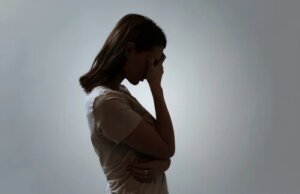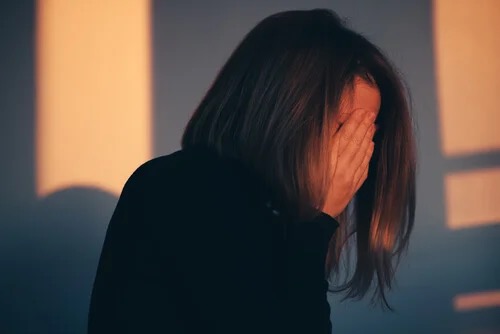Trauma-Related Guilt, a Paradoxical Phenomenon

Trauma-related guilt is a kind of remorse that happens after someone has been abused or exposed to a dangerous or violent situation. It can also arise after particularly painful events, such as the death of a loved one or a divorce.
The paradox of traumatic guilt is that the victim is the one who feels guilty. However, why should a victim feel guilty? It’s the perpetrator who should feel remorseful.
“The worst guilt is to accept an unearned guilt.”
-Ayn Rand-
In fact, it’s often the case that the perpetrators don’t feel any guilt, at least not consciously. They tend to justify their actions by saying things like “They deserved it” or “They made me do it”. On the other hand, it’s the victim who experiences traumatic guilt, which often ends up determining much of their future life.

Trauma, a complex phenomenon
Trauma originates from an experience that physically or psychologically threatens a person. This might be a dangerous situation in which the victim’s left feeling helpless. For instance, an assault or an accident, among other examples.
In this kind of situation, the individual experiences confusion, horror, and a sense of total chaos. They might feel completely overwhelmed or that nothing makes sense. Furthermore, a traumatic situation usually produces fragmented memories.
The victim feels it’s impossible to talk about what’s happened to them. In fact, they consider that nobody could ever understand the magnitude of what’s happened to them and how they feel about it. Consequently, they have a tendency to feel completely separated from the rest of the world.
The trauma they feel makes the victim mistrust both themselves and others. In fact, the traumatic event has somehow damaged their reasoning, which they thought was strong and resilient. This is because humans tend to believe they have control over reality and trauma weakens this belief. Therefore, on these occasions, it could be said that the Self has been violated.
Trauma-related guilt
All trauma leaves an indelible mark both in the conscious and the unconscious. After a traumatic event, the victim tends to emotionally withdraw. In fact, they “hide” inside themselves. This means, that to a lesser or greater extent, they become completely isolated.
They also have a need to recreate the event, to try and make sense of it. Within this form of rumination, there are two distinct feelings. These are shame and trauma-related guilt.
Trauma-related guilt generally takes shape in the form of thoughts and conjectures. The victim worries over what they should or shouldn’t have done to stop the painful event from happening in the first place. As a matter of fact, without even realizing it, they begin to adopt the kind of mindset of “I should’ve defended myself better” or “This only happened to me because I’m weak”.
One of the most problematic elements is that the victim starts to consider the world a threatening place. They no longer know what to expect. Furthermore, they feel extremely vulnerable because they’ve gone through an experience they were unable to control. This could lead to them becoming either inhibited or, on the other hand, rather reckless.

The paths of trauma-related guilt
Many of these processes associated with trauma-related guilt happen unconsciously. The victim often experiences fragmented memories of what happened. This leads them to think of imagined responsibilities. For instance, “I must have realized what was going to happen” or “I should’ve found out more about the area before going down that street”.
Then, without even noticing, victims find themselves wanting to justify those completely irrational and reprehensible acts of violence or abuse. Nevertheless, they also want to regain their imagined control over the world. However, they’ll never manage to revisualize themselves as subjects and not just objects of others or the world, if they just keep blaming themselves.
Untreated trauma can cause effects that last a lifetime. These effects might manifest themselves in the form of feelings of anxiety, encapsulation, and objectification. Consequently, the victim either ends up feeling that they need to “let themselves go” or, on the other hand, are afraid of doing anything that involves them having any kind of control over their own destiny.
Trauma and trauma-related guilt must be addressed with therapy. The victim mustn’t stay silent. They need to reinterpret what happened to them in a more realistic and flexible way so they can come to terms with their pain. Finally, they need to reconcile with themselves. In fact, having faced such atrocities, they should consider it a real achievement that, in one way or another, they’ve managed to get through it all.
All cited sources were thoroughly reviewed by our team to ensure their quality, reliability, currency, and validity. The bibliography of this article was considered reliable and of academic or scientific accuracy.
- Gaborit, M. (2010). Desatres y trauma psicologico. Pensamiento psicológico, 2(7).
This text is provided for informational purposes only and does not replace consultation with a professional. If in doubt, consult your specialist.








